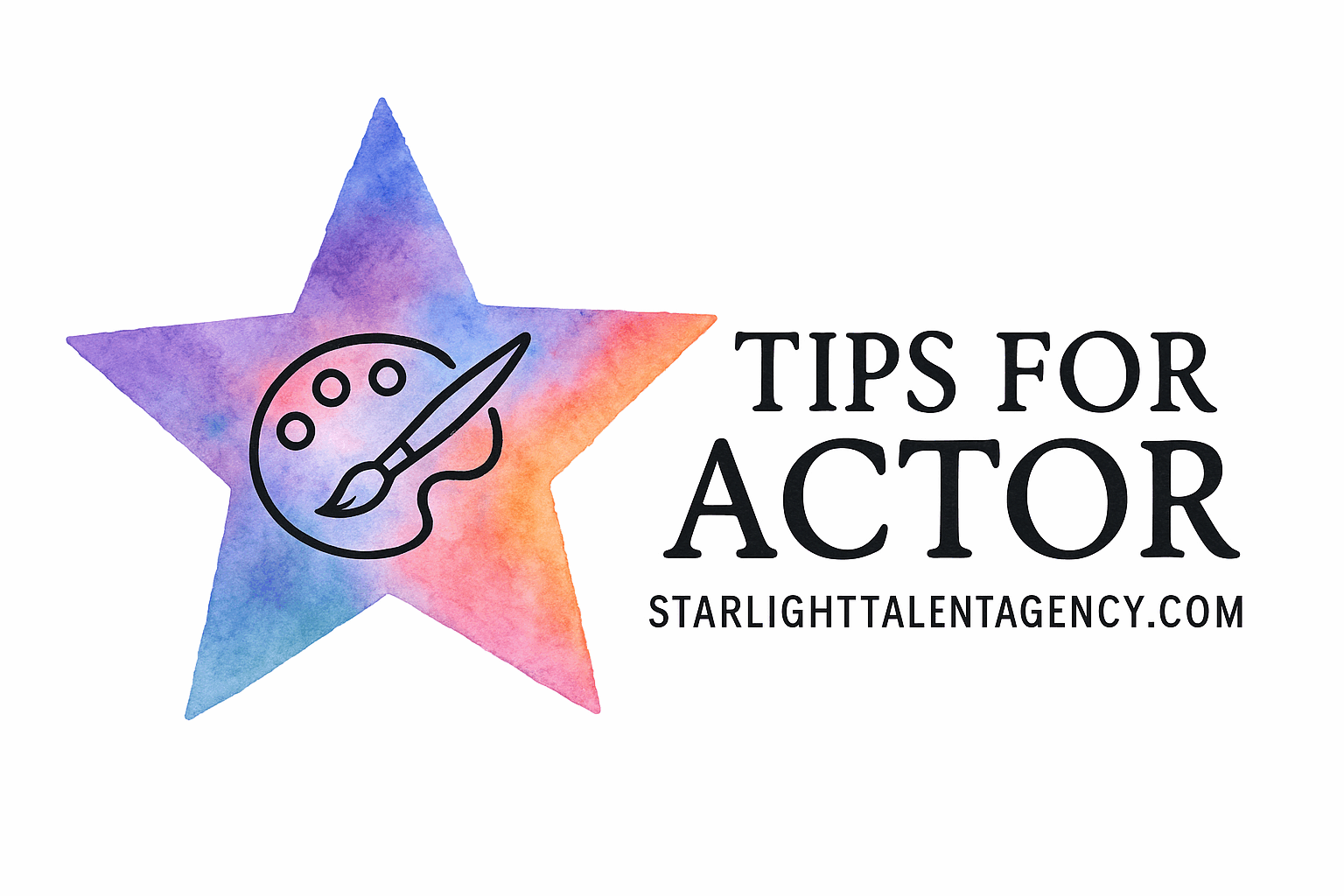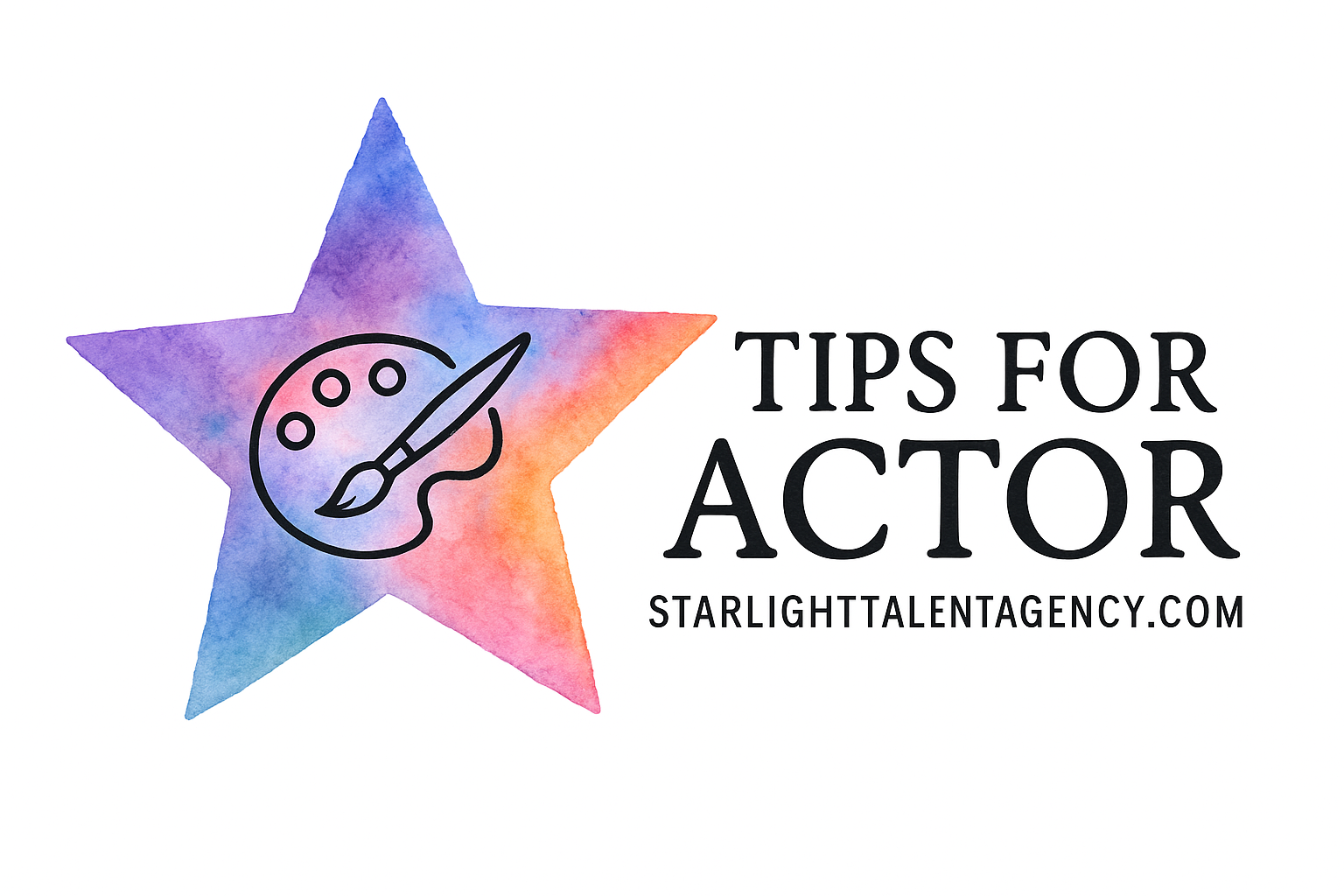Introduction: Why Finding an Acting Agent Matters
Every actor dreams of landing that breakthrough role — the one that changes everything. But before that moment arrives, there’s a key person you need on your side: an acting agent. Think of an agent as your guide through the unpredictable world of entertainment — someone who helps you find opportunities, navigate contracts, and connect with casting directors.
Without an agent, your journey can feel like trying to navigate Hollywood without a map. The right agent doesn’t just find you work — they help you grow strategically. Whether you’re starting out or ready for your next level, these six coaching tips will help you attract and secure the right representation.
Understanding the Role of an Acting Agent
What Does an Acting Agent Actually Do?
An acting agent’s job goes far beyond just finding auditions. They negotiate contracts, pitch you for projects, and advocate for your value in the industry. Agents also guide actors through essential preparation, such as audition preparation basics and professional branding.
A reputable agency like Starlight Talent Agency provides personalized representation — helping actors grow with structured career advice, access to top casting calls, and targeted exposure in the right markets.
How Agents Help Build an Actor’s Career
A great agent acts as both your representative and mentor. They understand how to position you in the market, recommend acting classes, and ensure your submissions are competitive. They can also help you strengthen your self-presentation through advanced audition skills and character development, both of which make you more appealing to casting directors.
Tip #1: Perfect Your Craft Before Reaching Out
Before you contact any agent, your craft needs to be sharp enough to stand out. Agents only take on talent they can confidently represent — so preparation is everything.
Invest in Acting Classes and Workshops
Ongoing training is essential. Explore programs in advanced audition skills and scene work that focus on real-world performance. These classes teach you how to handle direction, improve your acting confidence, and elevate your presence on stage and on camera.
Training also gives you valuable exposure. Many agents attend industry showcases or partner with schools to scout emerging talent.
Build a Strong Acting Resume and Reel
Before you approach agents, make sure you have a professional acting resume and demo reel. Highlight your experience in on-camera acting, stage presence, and script analysis.
If you’re new, don’t worry — short films, theater projects, and student productions all count. What matters most is that your reel shows your range and authenticity.

Tip #2: Know Your Acting Brand
Define Your Unique Strengths
Every successful actor has a brand — a unique energy that makes them recognizable. Are you the intense dramatic lead or the quick-witted comic relief? Knowing this helps your agent pitch you effectively.
Take time to explore character development and expressive acting to understand how your natural personality translates to characters. This awareness helps you market yourself clearly.
Develop Your On-Camera and Stage Presence
Your stage gestures and body acting play a big role in your branding. Work on taking direction and building acting flexibility — agents love adaptable performers.
If you plan to audition online, practice self-tape mastery. Today, self-taped auditions are often an agent’s first look at you.
Tip #3: Create a Professional Portfolio
Your portfolio is your calling card — it should represent your best self.
Build a Stunning Acting Resume
Your resume must include your latest training, acting credits, and special skills (such as accents or dialect training). Present it neatly and clearly. Agents appreciate resumes that show commitment and versatility.
Film a Compelling Self-Tape
Technical Setup for Self-Tape Success
With digital auditions becoming the norm, mastering your setup is essential. Review self-tape setup and self-tape clothing guides to ensure your lighting, sound, and wardrobe are professional.
Choose roles that show your strengths, film in HD, and keep backgrounds simple. The better your self-tape, the stronger your first impression with agents.
Tip #4: Network Like a Pro
Networking opens doors that skill alone can’t.
Attend Industry Events and Showcases
Get involved in workshops, film festivals, and acting events where you can meet casting professionals. Agents often attend such events, looking for emerging talent who stand out naturally.
Connect with Coaches and Casting Directors
Your acting coach is more than just a teacher — they’re often a connector. Building good relationships can lead to referrals. Stay in touch with mentors and professionals from coaching tips for actor resources; they often know agencies seeking fresh faces.
Tip #5: Research and Reach Out to the Right Agents
How to Find Reputable Acting Agencies
Not all agents are the same. Seek out agencies that specialize in your niche. For example, Starlight Talent Agency offers guidance in career growth and personal representation across multiple entertainment sectors.
Avoid agents who charge upfront fees — legitimate ones earn commission only after you book a role.
Crafting a Winning Agent Submission Package
Your submission package should include:
- A recent professional headshot
- Your polished acting resume
- A link to your demo reel or self-tape acting
- A personalized cover letter
Email Etiquette for Agent Submissions
When reaching out:
- Keep the email concise and respectful.
- Use a clear subject line (e.g., “Seeking Representation – [Your Name]”).
- Include all relevant links instead of large attachments.
- Express enthusiasm but avoid sounding desperate.
Tip #6: Prepare for the Agent Meeting
How to Make a Strong First Impression
Treat your first agent meeting as a collaboration, not an interrogation. Be punctual, relaxed, and genuine.
Beforehand, review acting wardrobe and acting schedule tips to ensure you look professional and manage your commitments responsibly.
Common Questions Agents Ask Actors
- What kind of roles excite you?
- What are your long-term acting goals?
- How do you handle rejection or critique?
Prepare thoughtful, authentic answers. Honesty and personality go a long way.
Common Mistakes to Avoid When Seeking Representation
- Submitting before you’re ready.
- Sending generic mass emails.
- Ignoring constructive feedback.
- Overstating your experience.
- Forgetting follow-up etiquette.
Review acting rejection resources to handle setbacks gracefully and maintain a professional mindset.
Building a Long-Term Relationship With Your Agent
Communication and Professionalism Matter
Once you’re signed, maintain clear communication. Share updates like new training, warm-up exercises routines, or new demo footage.
Treat your agent like a partner in your career mindset journey. The stronger your working relationship, the more effectively they can advocate for you.
Conclusion: The Journey to Representation
Finding the right agent is about more than luck — it’s about preparation, persistence, and authenticity. These 6 coaching tips for actor finding an agent are designed to help you stand out and build a sustainable career.
Keep training, keep networking, and most importantly — keep believing in your craft. The right agent will recognize your dedication and help you turn that passion into lasting success.
FAQs
1. How do I know I’m ready to find an agent?
When your acting resume and demo reel reflect your best work and you’ve completed essential audition preparation, you’re ready to reach out.
2. Should I ever pay an agent upfront?
No. Legitimate agencies like Starlight Talent Agency only take commission after you book work.
3. How long does it take to find an agent?
It varies — anywhere from weeks to months. Focus on acting prep and improving your portfolio while waiting.
4. What should I bring to an agent meeting?
Your acting resume, headshots, and self-tape links — plus a professional attitude.
5. Can beginners get an agent?
Absolutely! Many agents are open to representing new actors who show strong acting confidence and potential.
6. How often should I update my reel?
Every six months or whenever you land a new notable role.
7. Is it okay to have more than one agent?
Only if they represent you in different regions or divisions — for example, commercial vs. theatrical — and all parties agree in writing.

